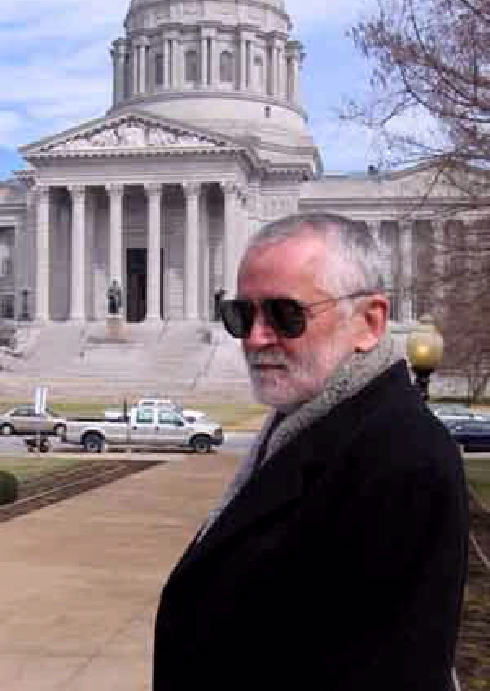«RM75»«FC»«MDBO»COL052.PRB - Campaign 2012, Advertising or Policy?
«MDNM»«FL»
I have a confession as I resume Capitol Perspectives this fall for you - I am not looking forward to the fall campaign season.
For someone who has spent almost his entire adult life covering politics and government, you'd think I'd be looking forward to what promises to be a hot political season.
But, instead, I'm dreading what I fear will be a journalistic nightmare trying to get access to candidates and meaningful responses about the major issues facing our state.
After the 2010 campaigns, one colleague jokingly vowed to refuse to cover the 2012 campaigns if the candidates continued to make access so difficult for reporters. It was just a joke, but it's an indication of the growing frustration in covering political campaigns.
Political campaigns have changed dramatically since I began as a rookie reporter.
Back then, most candidates were easily accessible to reporters. They held regular and lengthy news conferences in the statehouse. They issued detailed policy papers that reflected extensive thought and staff research. They seemed truly eager to talk with reporters about their views.
That's not the pattern today. Access to many candidates is restricted. News conferences on complicated policy issues have been replaced by made-for-TV media events in the major markets. Little of substance about public policy may be discussed, but the pictures sure look pretty.
Years ago, I sensed that the driving motivation for many candidates was to change public policy. Positions were taken on difficult issues in order to claim a voter mandate.
The best example was Mel Carnahan's campaign for governor in 1992. He made a tax increase for education a key issue in his campaign. As a result of his election, he entered office with a voter mandate that helped get through one of the biggest tax increases in the state's history.
Today, many candidates seem to avoid taking politically risky position on a major policy issue in order to win a mandate. Candidates seem more driven by a desire to win an office, rather than in changing policy.
Money, of course, is another factor in the change in the political landscape. There's so much cash available for political campaigns that candidates no longer need to rely on what strategists call "free media." They can buy all the broadcast time and newspaper advertising they need to communicate without the risk of being forced off message by pesky reporters.
Trackers have had a significant impact. A tracker is a campaign staffer who follows the opposition candidate almost everywhere, shooting video in hopes of catching the candidate making an off-hand, stupid comment. To frustrate trackers, some candidates refuse to release their schedules until the last moment, preventing long-term campaign-coverage plans by reporters.
Richard Nixon's 1968 presidential campaign has been cited as the watershed in the change in modern campaign practices. In his book "The Selling of the President," Joe McGinniss wrote about the Nixon campaign's adoption of advertising tactics to sell the candidate. At the time, it was a new approach. Today, unfortunately, it's standard practice for many candidates.
Todd Akin's experience may cause candidates to be even less accessible and candid with reporters. A former journalist friend told me he's concerned the Akin episode will have a chilling effect.
�
[Phill Brooks has been a Missouri statehouse reporter since 1970, making him dean of the statehouse press corps. He is the statehouse correspondent for KMOX Radio, director of MDN and an emeritus faculty member of the Missouri School of Journalism. He has covered every governor since the late Warren Hearnes.]
 MDN.ORG:
Missouri Digital News
MDN.ORG:
Missouri Digital News

 MDN.ORG
MDN.ORG
 Mo. Digital News
Mo. Digital News
 Missouri Digital News
Missouri Digital News
 MDN.ORG:
Mo. Digital News
MDN.ORG:
Mo. Digital News
 MDN.ORG:
Missouri Digital News
MDN.ORG:
Missouri Digital News

 MDN.ORG:
Missouri Digital News
MDN.ORG:
Missouri Digital News

 MDN.ORG
MDN.ORG
 Mo. Digital News
Mo. Digital News
 Missouri Digital News
Missouri Digital News
 MDN.ORG:
Mo. Digital News
MDN.ORG:
Mo. Digital News
 MDN.ORG:
Missouri Digital News
MDN.ORG:
Missouri Digital News


